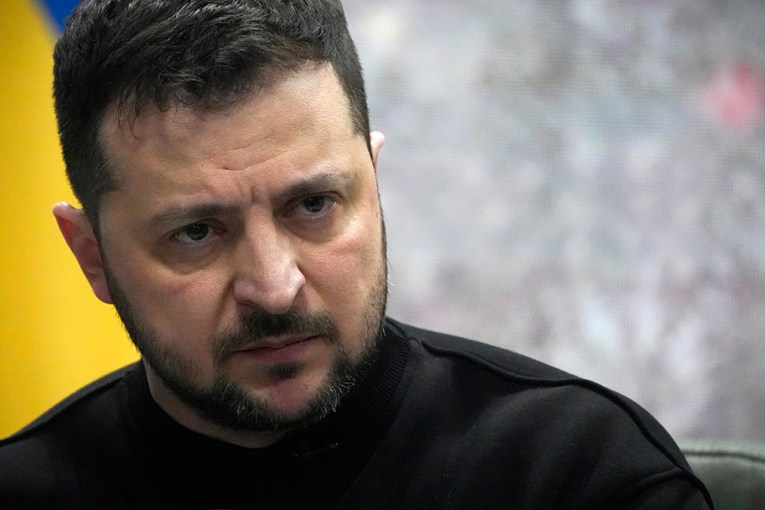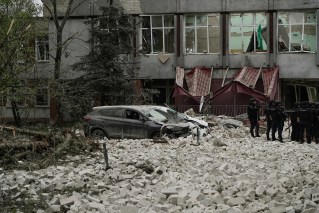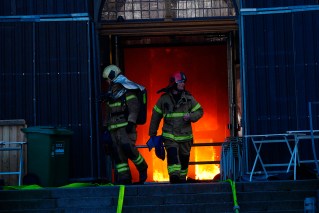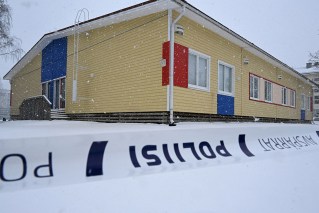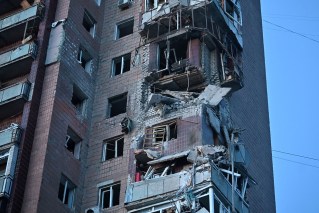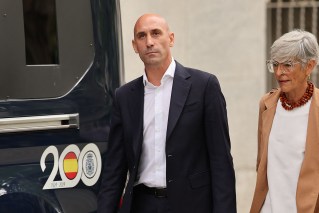US President Donald Trump says his administration have not yet seen any proof that Russian opposition leader Alexei Navalny was poisoned by state forces.
NATO Secretary-General Jens Stoltenberg earlier condemned the “appalling assassination attempt” on Mr Navalny and called on Moscow to answer questions about the poisoning to international investigators.
However, at a White House news conference on Friday (local time), Mr Trump declined to accept the assessment that the Russian opposition leader was attacked with a nerve agent.
“I don’t know exactly what happened,” he said.
“I think it’s sad, it’s tragic, it’s terrible, it shouldn’t happen. We haven’t had any proof yet, but I will take a look.
“It is interesting that everybody’s always mentioning Russia, and I don’t mind you mentioning Russia.
“We’ll take a look at the numbers and the documents, because we’re going to be sent a lot of documents over the next few days.”
Tweet from @Acyn
Mr Navalny, a Kremlin critic and corruption investigator, fell ill on a flight to Moscow on August 20 and was taken to a hospital in the Siberian city of Omsk. He has been in an induced coma in a Berlin hospital since he was flown to Germany for treatment more than a week ago.
German authorities have said that tests showed that he had been poisoned with a chemical nerve agent from the Novichok group. British authorities previously identified the Soviet-era Novichok as the poison used on former Russian spy Sergei Skripal and his daughter in England in 2018.
“There is proof beyond doubt that Mr Navalny was poisoned using a military-grade nerve agent from the Novichok group. The use of such a weapon is horrific,” Stoltenberg said on Friday after chairing a meeting of NATO ambassadors during which Germany briefed its allies on developments.
“Any use of chemical weapons shows a total disrespect for human lives and is an unacceptable breach of international norms and rules. NATO allies agree that Russia now has serious questions it must answer,” he told reporters.
Mr Stoltenberg said Moscow must cooperate with the international chemical weapons organisation in “an impartial, international investigation” and provide information about its Novichok program.
Russian authorities have appeared reluctant to investigate what caused Mr Navalny’s condition, saying there had so far been no grounds for a criminal investigation.
Interior Minister Vladimir Kolokoltsev said Friday (local time) that a preliminary inquiry was ongoing, but added that he saw no signs of a crime in what happened to the most determined critic of Putin.
Asked about the case Friday, President Donald Trump told reporters that “I don’t know exactly what happened,” adding that “we haven’t had any proof yet.” But later he said he would not be happy if Russia did poison Mr Navalny, “and that seems to be the case”.
White House press secretary Kayleigh McEnany said Thursday that Mr Navalny was the victim of a “reprehensible” poisoning.
“Russia has used chemical nerve agents in the past,” she added, “and we’re working with our allies and the international community to hold those in Russia accountable wherever the evidence leads and restrict funds for their malign activities.”
Mr Putin’s spokesman has brushed off allegations that the Kremlin was involved in poisoning Mr Navalny and said Thursday that Germany hadn’t provided Moscow with any evidence about the politician’s condition.
“We have nothing to hide,” Russian Foreign Minister Sergey Lavrov said Friday, asserting that German authorities had stonewalled Russian requests for information.
Mr Lavrov said the failure to provide information about Mr Navalny’s poisoning could indicate a lack of evidence.
“Our Western partners allow themselves to make arrogant demands in such a tone that suggests that they have nothing but pathos to put on the table,” he said.
After the March 2018 attack on the Skripals in the English city of Salisbury, NATO withdrew the accreditation of seven staff members at Russia’s mission to the military alliance and rejected the applications of three others.
No such action was announced Friday.
Earlier Friday, German government spokesman Steffen Seibert insisted it was up to Moscow to answer questions about what had happened to Navalny.
“Russia has information about the poison attack or can obtain them, not us,” he told reporters in Berlin.
“Numerous samples were taken in Russia, and objects were seized,” Mr Seibert said. “We expect the Russian government to explain itself in this case.”
-with agencies

